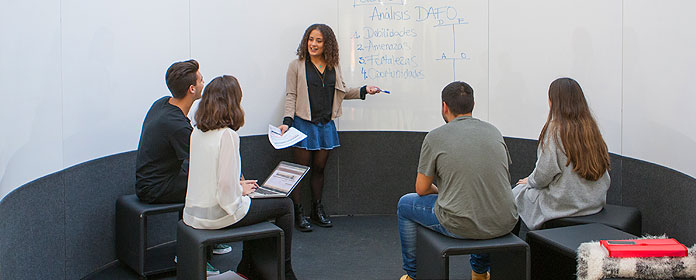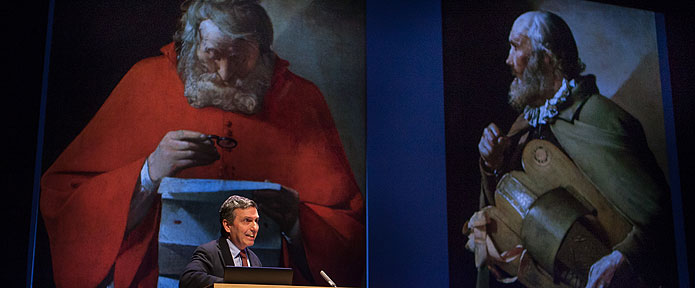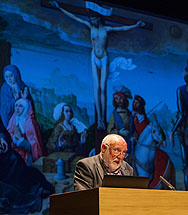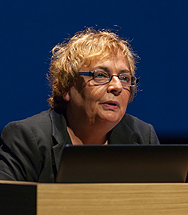"Artistic gifts played an important role in diplomatic relations in Early Modern Europe."
The director attachment of conservation and research of the Prado Museum, Miguel Falomir, spoke about the paintings as a gift in the second lecture of the cycle on the art gallery.
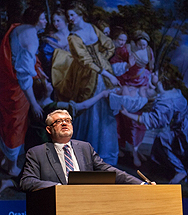
The second session of the lecture series "The Prado Museum: historical milestones of its collections", organized by the Friends of the Prado Museum Foundation and the School of Philosophy y Letras at the University of Navarra Museum, was held on October 26. On this occasion, the speaker was Miguel Falomir, director attachment of conservation and research of the Museo del Prado, who titled his session "Giving away paintings. From the royal collection to the Prado Museum".
During his exhibition, Falomir addressed the ways in which the works entered, either in the former Royal Collection or, since 1819, in the already constituted Prado Museum. In this regard, Falomir pointed out that a high issue of the masterpieces did not reach the hands of the monarchs or the Prado Museum as result of an economic transaction, but as gifts or donations. "The gifts of works of art satisfied the purposes for which they were made, which could range from thanking a king for a favor granted, to gaining the favors of some mandatary, the gift also had a social value." Likewise, Falomir added that the gifts also served to know "the tastes of the time", who made a gift did not venture and learned about the tastes of the person to whom the gift was addressed through their ambassadors. In this sense, there is a lot of correspondence that financial aid gives us a glimpse of "a certain Spanish taste".
Throughout his lecture, Falomir analyzed the motivations behind these gifts and donations, identified those responsible and even ventured a typology of these practices, which "played an important role in diplomatic relations in Modern Europe", and without which "the Prado Museum would not be what it is today". "However," the expert wanted to add, "the greatest gift of all is the Museum itself to the Spanish people, which came about when Isabel II separated her personal properties from those of the State and the Museum passed into State hands".


